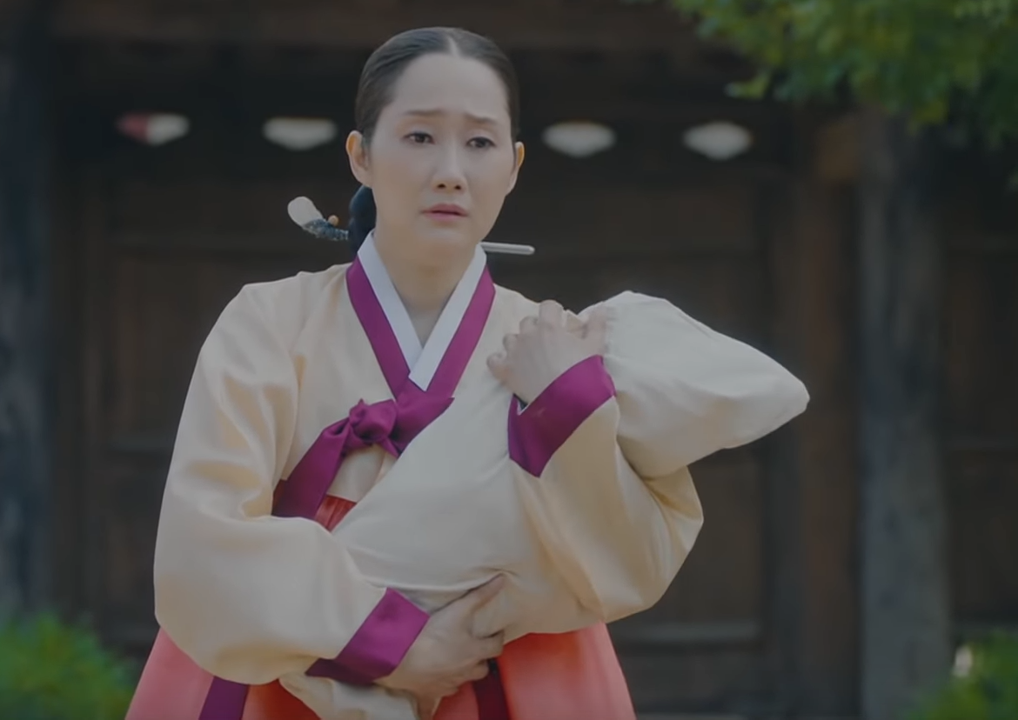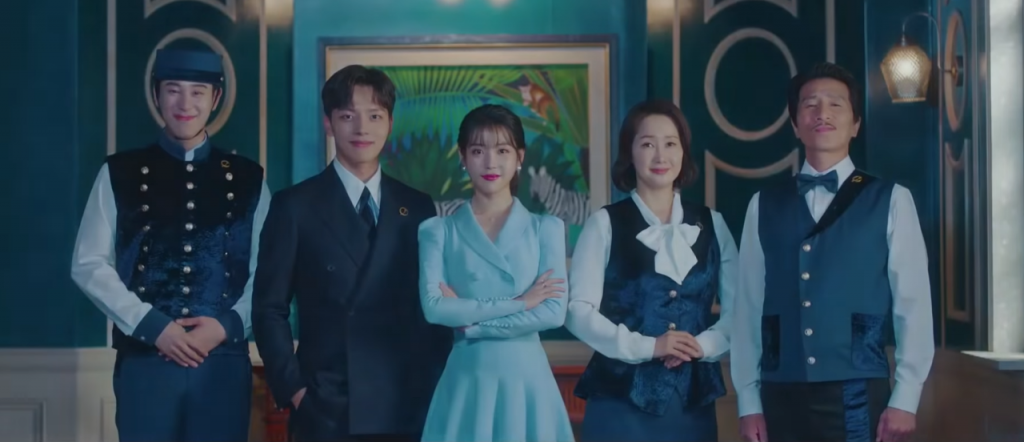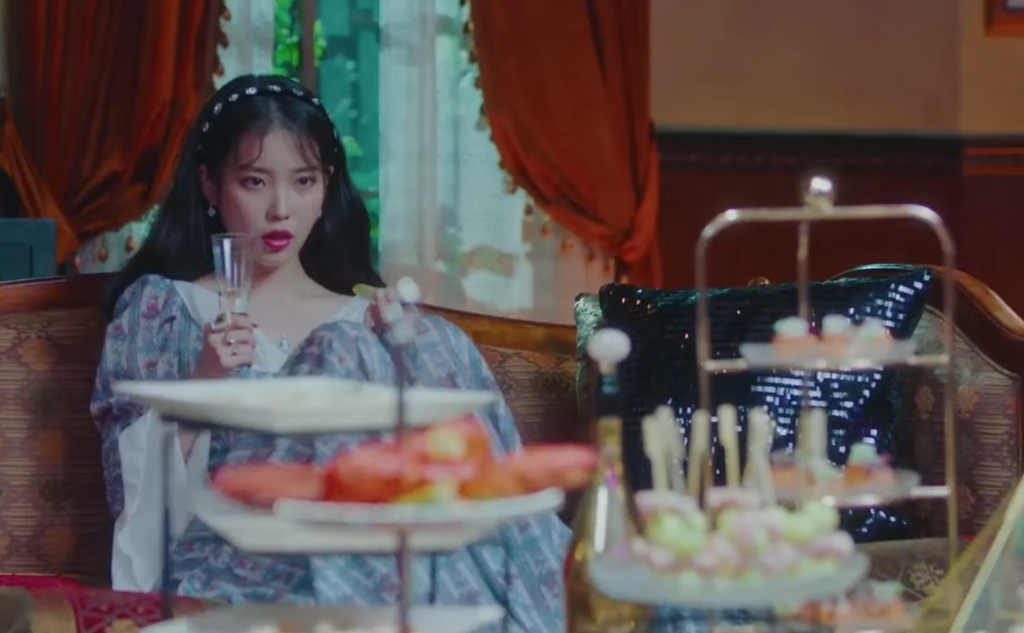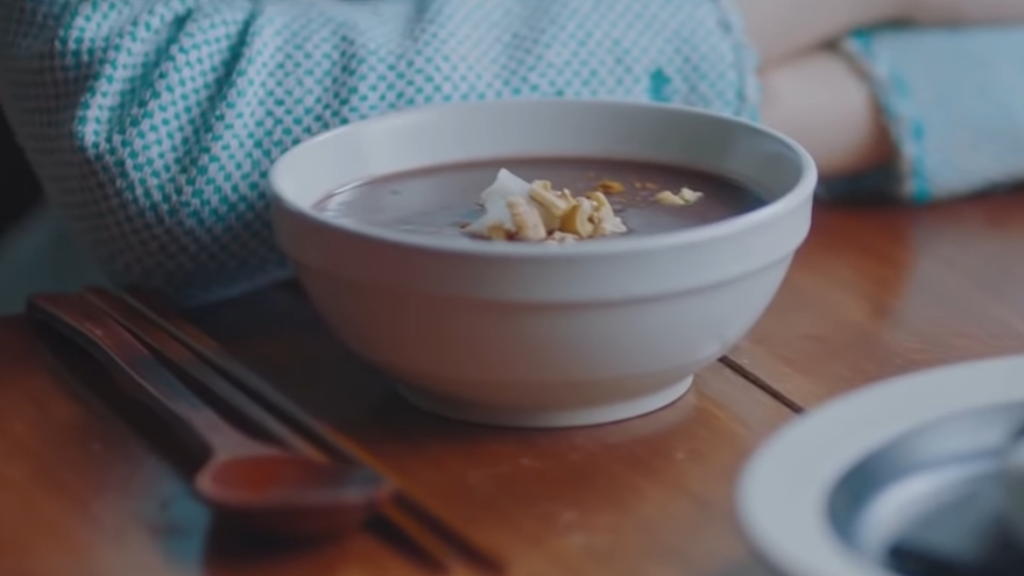
From its concept to its cast and sets, Hotel Del Luna catches the eye even during the early days of its promotions. With the brilliant IU holding the front as the drama’s enigmatic hotel owner, it was hard not to have high expectations. Now that the final curtain call has been drawn, I can safely say that Hotel Del Luna was a satisfying journey, albeit its abrupt and slightly unconvincing romantic plot.
Korean dramas that involve the supernatural often lie on two far ends of a spectrum: full-out horror or having its plot give way into a stereotypical love story. Hotel Del Luna leans heavily towards the latter, though thankfully saved by the sisters’ inclusion of comedy and various moving subplots, as well as their subtle subversion of conventions. For the Hong sisters who propelled the supernatural romantic comedy in K-dramas to its current popularity, this particular drama is yet another achievement with many familiar elements from their usual style of writing.
IU plays strongheaded and individualistic Jang Man-wol, a character with a dark backstory involving bloodshed and betrayal. Having lived for 1300 years, her cold demeanour already casts out the stereotype of a frail and needy female protagonist. Even beyond her self-assured exterior, the drama does not depict her as just another lonely immortal desperate for love. Rather, Man-wol is always seen to be in control, made even more obvious when she is faced with conflicting desires. She is motivated and knows that her choices, even if they are based on heightened emotions of the moment, have consequences that she must deal with.
There are multiple moments when she demonstrates such maturity in handling the various curveballs the Gods throw at her. Perhaps the best representation would be in the moments leading up to her confrontation with Seol Ji-won (Lee David), the most sinister villain of the entire series. She speaks to her past self who is filled with grief and driven by vengeance, manifested literaly in another image of herself dripping with the blood of those she has killed. This complete dissection of her emotions into another entity reflects Man-wol’s clarity of thought; she is aware of her deeply rooted hatred from her past life, feelings which she deals with as separate from her present more contented self after meeting Ku Chan-seong (Yeo Jin-gu).
The drama never falls into a completely dreary love story, convincing the audience that Man-wol is in fact a multifaceted character who exists independently outside her romantic inclinations towards Chan-seong or her former lover, Gu Chung-myung (Lee Do-hyun). She exacts revenge on Lee Mi-ra (Park Yoo-na), a reincarnation of her ex-nemesis Princess Song-hwa, by unleashing a wretched curse. At the same time, she continually demonstrates sympathy towards wronged souls while also being supremely narcissistic and overindulgent in luxury goods. It is hard to pin Man-wol as an angel or villian, and it is this mixture of traits associated with both good and evil that makes her so charming. She remains a relatable character despite her position as an affluent immortal dissociated from the living and dead.
Going beyond the main storyline, the drama’s supporting characters add to its appeal. Each episode focuses on the passing stories of the hotel’s customers, but these small narratives build up towards the eventual unravelling of the various supporting characters’ backstories. Ranging across a broad timeline of more ancient times to more recent historical moments like the Korean War, the hotel’s main staff provides the grounding to reflect the struggles of Korea and the development of its society.

Block B‘s P.O plays Ji Hyun-joong, the hotel’s receptionist who had been killed during the Korean War. It is revealed in the later half of the drama that he is waiting for his sister to pass away before moving on into the afterlife. However, this seemingly innocent story unravels into one tied to a tragic betrayal as he ends up being shot by his best friend in an unfortunate tussle. On the other hand, the reliable hotel staff Choi Seo-hee (Bae Hae-sun) is actually filled with deepset hatred for her husband’s family after being banished by out of the household and having her daughter murdered by them.
Hotel Del Luna draws spirits with lingering grievances or regret about their forgone lives, resulting in their unwillingness to move on into reincarnation. The longer they dwell in the living realm, the more irresolvable and severe their obsession with the living world. The hotel acts as a place of reprieve and transition away from such lingerings. Yet, for the staff members, they have chosen to dwell the longest because they desire a reason to remain in the living realm and wait out for their dying wishes to be fulfilled. Their stories then become the most prominent ones in the drama’s message of learning to let go. Revenge might have been their motivation to serve at Hotel Del Luna for an extended duration, but oftentimes vengenance is hardly completely achieved. Rather, they encounter individuals that had been part of their lives and realise that stealing the lives of others in anger is meaningless in comparison to protecting promising lives.
Hyun-joong willingly but sadly departs with his sister despite his ongoing romance with Kim Yoo-na (Gugudan‘s Kang Mina), a living girl who is employed as an intern with Hotel Del Luna. Seo-hee chooses to protect the last remaining heir to her deceased husband’s bloodline over her supposedly resolve to kill off his entire family. Even Man-wol herself is forced to encounter reincarnations of her former enemies and loved ones, eventually coming to terms with the reality that they are living new lives separate from her grievances. Hard as it might be to forgo a thousand year hatred, Man-wol does let go of her desire for revenge despite remaning unwilling to forgive her past enemies.
The drama also does a supreme job of balancing between the intriguing unravelling of the past with its present-day storyline. The storyline grounds itself well with the everyday ongoings of the hotel while bringing in the past in satisfying bits. Doing so allows the plot to propel onwards without degrading into a vengeance driven bloodthirsty war revolving around a forgone past. The characters, dead and alive, live in the present and move forward constantly along with the times in a relatable manner.
If the weaving of past and present timelines are not to the tastes of some and the horror elements far too grotesque, Hotel Del Luna ensures that it is an aesthetically pleasing and fun-filled journey as well. The drama overflows with lavish products of all kinds, whether it is in the luxurious and gorgeous outfits of Man-wol or the rows of expensive cars and lifestyle items in the hotel. Every scene is a prime shot for sponsorships from wines and jewellery to architecture and food products. There is an entire episode surrounding the drying out of a Makgeolli or Korean Rice Wine manufacturing company.
Speaking of food, Man-wol’s constant obsession with Kim Joon-hyun‘s food show makes the drama a pleasing food trail as well. An advertisement for Korea’s culture, through food as well as its history (Chan-seong resides in his friend’s Hanok house), it is a mouth-watering ride that has given birth to interesting marketing campaigns such as Man-wol’s actual Instagram account. Extending from the TV screen onto our phones and social media channels, Hotel Del Luna and Man-wol exists as part of a faux reality blurred into our everday lives. Kudos to the Hotel Del Luna team for leveraging on Man-wol’s flippant and at times superficial indulgences (traits that make her more approchable) to their own marketing benefit.
Besides promoting the show itself, Hotel Del Luna is a great base for attracting international interest. Korea has done well in using dramas to generate interest in its sites. Sites that have been featured in hits like Goblin or the aged Winter Sonata have become prime tourist spots. With Hotel Del Luna being such a success, the long list of featured restaurants are bound to be filled with customers by the time this review is published.
Being too blatant about sponsorships and commercial purposes can make a drama seem cheap. Hotel Del Luna manages to overcome this by offering a wholesome narrative and viewing experience — so much so that I’m willing to overlook the overload of product placements. Profit-making aside, the drama is also a joy to watch for its infusion of comedic elements admist the thrills.
Man-wol’s oftentimes arrogant and dismissive attitude can be enigmatic, but she is also filled with mischievous tricks up her sleeve. After all, she has got to find some ways of amusing herself after living over a millennia. The banter between the hotel staff are also cheeky as they jibe at each other, whereas their moments of panic at angering Man-wol also inject humour in times of impending doom. The multicoloured personalities of the characters cause them to fight and argue, but also lead them to understand and care for each other.
Despite Man-wol’s cold exterior, she is in fact a meticuous and caring employer. The audience comes to find out how she remains dedicated to her role as part of a service industry (of sorts), while also remembering the histories of all her employees, past and present. She seldom lets herself be seen as vulnerable or emotionally attached to others, but viewers get a glimpse of her grief at the departure of her former hotel manager and her wall full of photographs tied to each of her past hotel managers. Even after a 1300 years and witnessing many passings, Man-wol is not immune to human emotions of camaraderie and kinship.

Perhaps the one tiny factor to nitpick on would be the abrupt romantic development between Man-wol and Chan-seong. Almost out of the blue, and maybe with some divine intervention, the two protagonists come to be in love with each other. This romance becomes important as Man-wol’s many decisions come to be based upon Chan-seong and the way he has made her change into a more humane person. His appearance triggers the blossoming of the Moon Tree tied to Man-wol’s time at the hotel as a wandering entity between living and dead. As the flowers bloom and wither, it signals the approaching time for Man-wol to proceed into the afterlife.
These feelings sprout after Chan-seong begins working at the hotel, as he constantly pushes Man-wol to alter her opinions about her lifestyle and how she treats spirits wandering into her hotel. It is convincing that she grows to care for him, but for their relationship to develop into a romantic one seems like a hard sell.
Thankfully, Hotel Del Luna does not fall into the mistake of making Chan-seong the reincarnation of her former lover, Chung-myung. Chan-seong is later revealed to indeed be from her past life, though only as a passing friend in a time of need. Man-wol’s star-crossed lovers story unfolds in a much more creative and melancholic manner. Chung-myung remains as an insignificant and unnoticeable firefly by the Moon Tree, waiting only till Man-wol is able to move on from the living realm. Only then does he manifest into a flickering spirit, one that is left with barely any strength left to even walk towards reincarnation without Man-wol’s assistance.
At this particular instance of reunification with Chung-myung and departure from her beloved Chan-seong, Man-wol is thrown another heartwrenching obstacle by the deities. As expected of the capable Jang Man-wol, she obviously deals with it maturely. Hallelujah must be sung for the Hong sisters who manage to turn around a potential pitfall into boring K-drama convention.
Last but not least, if all the above are still not inadequate to whet your appetite, Hotel Del Luna is sprinkled with entertaining cameos from a pretty darn amazing cast list. Audiences obviously get Kim Joo-hyun’s appearance following Man-wol’s obsession with his food recommendations and manner of eating in one bite. The drama also brings in Lee Joon-gi as he plays an absurdly exaggerated exorcist, Lee Si-eon as an astronaut, Sulli as a potential love rival, Lee Yi-kyung and Pyo Ye-jin aa budding actors in a historical drama, and many more. Most tantalising of them all, viewers get a nice tidbit of Kim Soo-hyun‘s cameo in the final episode’s post-credits epilogue. It hints at a sequel, and hopefully an equally engaging one.
Hotel Del Luna has been a roller coaster ride of laughter, tears, anxieties, thrills, and diverse spectrum of many other emotions. There is abound to be something for everyone in its applaud-worthy balance of everything under the sun, be it genre mixing, aesthetic styles, character types, and even product advertising. Watching the talented IU take on yet another intriguing acting role, Hotel Del Luna proves to be a meaningful add to her long list of accomplishments. The Hong sisters have also carved down yet another memorable story for K-drama fans, leaving viewers with anticipation for another amazing series.
Hopefully the drama has provoked many thoughtful questions about acceptance and what a meaningful life can be, all the while still being entertaining for everyone. If you have yet to watch Hotel Del Luna, fear not for boring story conventions and proceed ahead for a thrilling ride.
(YouTube. Images via tvN)









